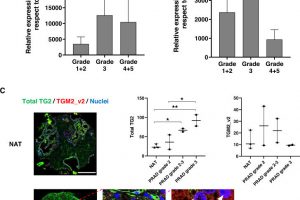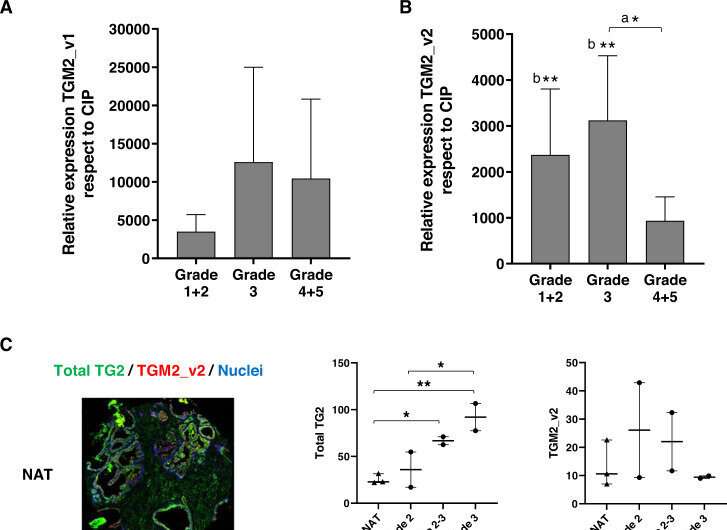Scientists identify mutant enzyme that helps prostate cancer spread and become more aggressive


Scientists have identified how a specific enzyme plays a key role in enabling prostate cancer to become more aggressive and harder to treat.
A team at Nottingham Trent University has found that “transglutaminase 2” (TG2) which is abundant in many of the body’s cells, is responsible for driving a process which leads to the progression and spreading of prostate cancer.
Early prostate cancer cells require the male hormone androgen to grow but as they advance they can become androgen-independent and therefore harder to treat with current therapies.
Until now it has not been clear how that process occurs but following tests the team found that a mutant form of TG2 is overproduced in prostate cancer and remains trapped inside the nucleus of cells.
There it restricts the levels of androgen response—making cancer cells the more aggressive androgen-independent—and increases expression of the protein “mucin-1,” which is known to be responsible for the growth and spreading of cancer.
The study also found that mucin-1 forms a mucous barrier on cell surfaces which protects cancer cells.
To support the work further the researchers analyzed biopsies of prostate cancer patients and identified increased levels of TG2.
While it can play a protective role in the body, TG2 has been associated with various human diseases, including neurodegenerative diseases such as dementia and organ fibrosis.
The team proposes that controlling the activity of the TG2 enzyme and mucin-1 may offer a new therapeutic option to treating aggressive prostate cancer.
In the UK prostate cancer is the most common cancer in men, with more than 52,000 diagnosed every year.
“We wanted to explore why some cancer cells become androgen-independent and as a result more aggressive and harder to treat,” said lead scientist Dr. Elisabetta Verderio Edwards, from Nottingham Trent University’s School of Science and Technology.
She said, “Transglutaminase is a multifunctional protein in all tissues and is involved in multiple processes. We have now deepened our understanding of its key role in aggressive disease in prostate cancer patients.
“Understanding this pathway is incredibly important. This process plays a key role in cancer’s ability to evade treatment and so warrants further investigation in terms of potential future treatment and therapy.”
Dr. Adeola Atobatele, another scientist on the study, said, “This finding has opened a significant pathway for understanding other key mechanisms prostate cancer cells utilize to evade key regulatory pathways.”
Last year NTU researchers revealed how tiny “nano-shuttles” transported TG2 around the brain where it went on to play a role in the activity of neurons.
The latest study, which also involved the Polyclinic Hospital University (University of Messina) in Italy, is published in the journal Cell Death and Disease.
More information:
Adeola Grace Atobatele et al, Canonical and truncated transglutaminase-2 regulate mucin-1 expression and androgen independency in prostate cancer cell lines, Cell Death & Disease (2023). DOI: 10.1038/s41419-023-05818-9
Journal information:
Cell Death and Disease
Source: Read Full Article